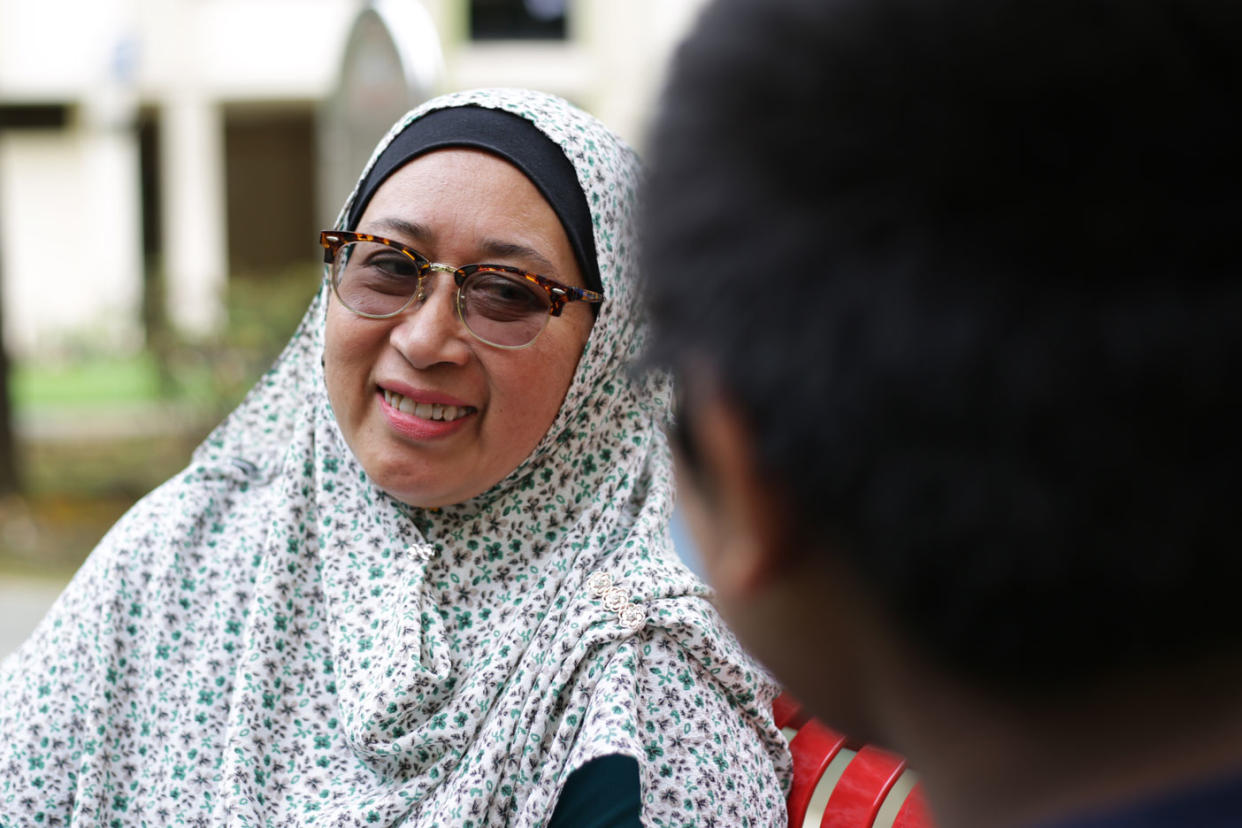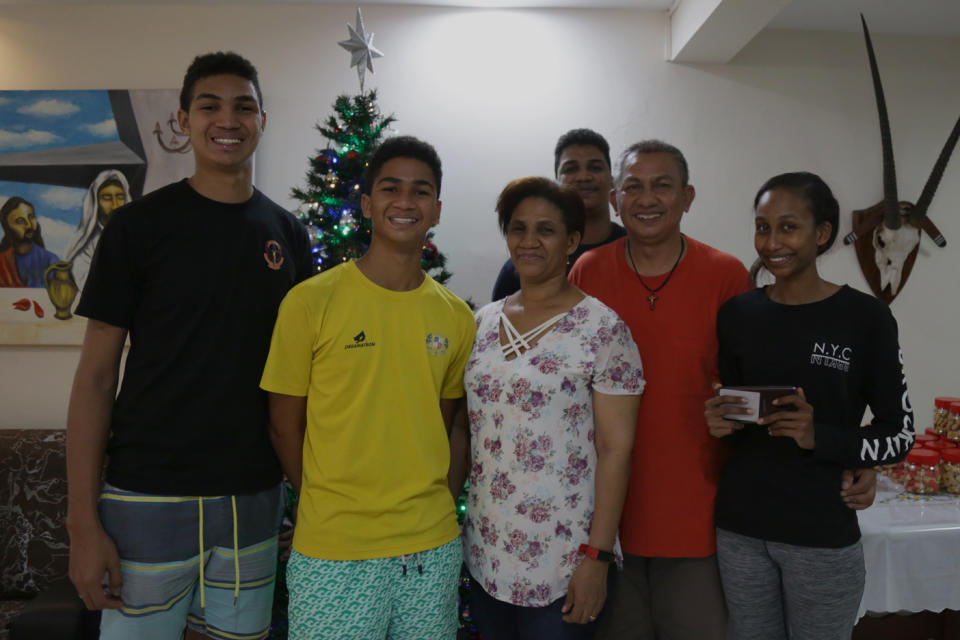Parents who treat foster children like their flesh and blood

For Norlia Ali Marican, having a simple meal at a shopping centre some years ago with a special needs child under her care was a challenging task.
The boy reacted badly to noisy crowds and bright lights. While the child was yet to be diagnosed then, he showed signs of attention deficit hyperactivity disorder and global development delay, according to the 53-year-old homemaker.
But Norlia is not the biological mother of the boy, now 7, who is attending a special education school – she is his foster parent.
Recalling the incident, Norlia said things “went berserk” and the boy took off his shoes before throwing them. The incident ruined someone’s meal as the shoes had landed on a pizza.
“We had to go over and apologise. When children have physical disabilities, people can see. But this boy looks normal,” said Norlia, a foster parent for 15 years. “People don’t understand.”
Despite the challenges of looking after the boy, she said the improvements in the boy’s behaviour over the last five years have made it worthwhile.
“When he came to us, he had basically zero knowledge,” she said. “Even doing basic things (on his own) is an accomplishment for us.”
For 55-year-old Gerard Nonis, a foster parent for 18 years, attending the wedding of a former foster child under his care was a moment of pride and joy for him. The bride had spent 10 months with Nonis and his family when she was 15 years old.
“She introduced us to her husband as mummy and daddy. The husband was a bit confused. She told him, ‘It’s a long story. Let’s talk about it later’,” quipped Nonis, a specialist trainer at the Singapore Police Force.
The introduction affirmed that the former foster child was not feeling embarrassed about her background, said Nonis.
Now, they remain in contact via Facebook as the “emotional attachment is always there”, he added.
Growing pool of foster parents
Norlia and Nonis are among 470 foster parents registered under the Ministry of Social and Family Development (MSF) fostering scheme as of end-September last year, almost doubled from 243 in 2013.
There were 550 children fostered as of end-September last year, up from 470 a year earlier, ranging from newborns to teenagers below 18.
These children have been placed under foster care for reasons such as physical abuse or neglect. Their parents could also be in prison, suffering from physical or mental illnesses, or have passed away, said an MSF spokesperson.
Individuals who want to be foster parents in Singapore have to fulfill a set of requirements. They must be at least 25 years old and married; residents of Singapore; medically fit to care for children; have a minimum household income of $2,000 and a per capita income of at least $700; and have at least a secondary school education.
“The MSF is looking for foster parents who want to make a difference to vulnerable children, and those who can provide them with a caring environment to heal and grow to the best of their potential,” said the spokesperson.
Foster parents would also need to work closely with the MSF officers and professionals in caring for the children and helping them to integrate them back to their birth families when it is appropriate.
Responding to media queries by Yahoo News Singapore, the spokesperson said that the MSF will review the Children and Young Persons Act and consult the public on the proposed amendments this year.
The ministry will also continue to increase its pool of foster parents and build a diverse pool of foster parents to meet the specific needs of children, said the spokesperson.
A calling to help
Nonis recalled the day when his 52-year-old homemaker wife, Susanna Daniels, received a “calling” to help foster children. Sometime in 2000, Daniels read an article on fostering and it spurred both her and her husband into action.
It was an easy choice to make as the couple came from very big families growing up – Nonis was one of seven siblings while Susanne was one of nine – and most importantly, they loved children, he added.
The couple, who have been married for 26 years, have four children of their own – three sons aged 27, 20, and 15, as well as a 25-year-old daughter.
Nonis said, “She was immediately struck by how it was something we want to do and contribute back to society. She called me on the phone straight away. The next day we called the ministry.”

Nonetheless, the couple had to consider the matter carefully as they would be taking care of somebody else’s child. They vividly recalled the day when they became foster parents for the first time.
“When we went to pick up the child, it was like going back to the time when we had small children,” Nonis said.
Since then, the Nonis family has fostered six children. Three – two 18-year-olds and an eight-year-old – remain under their care. “You must be to them what you are to your own children: a father, a friend, a teacher, a counsellor,” he added.
The greatest satisfaction for him and his wife is that they have been a part of a foster child’s life. “It is really wonderful to see a child grow up. As they grow up, they have ownership of themselves and have achievements they attain along the way,” Nonis said.
Norlia also had a similar epiphany in 2003 when she chanced upon an article about a foster parent who had stepped in to care for a child whose biological mother went missing, and was moved by the story.
Her husband had reservations initially but his perception changed when he saw the couple’s first foster child, a two-and-a-half months old baby boy.
The boy, who spent five years with the family, turned out to be the first of six children fostered by Norlia. Two of them – 11-year-old Hyrul (not his real name) and the seven-year-old special needs boy – remain under her care.
Norlia has two children of her own: a 21-year-old daughter and a 31-year-old son. She is thankful for the support that she has received from her family on her fostering journey.
“My husband is very supportive. From Monday to Friday is me but weekends, he or the children will take over. Without the help and moral support from family, I would have KO-ed (knocked out),” she said.
Several of Norlia’s family members and friends were initially sceptical about her fostering cause. But some of them have been “converted” – a sister-in-law has been a foster parent for four to five years while some friends have sent out applications, Norlia said.
Maintaining bond after leaving
For foster parents, the toughest part is when it is time to send the children back to their natural families. Because of the “painful” experience, Nonis and his wife considered “throwing in the towel” and stopped fostering children.
“But when we look back at the positive aspects of what we achieved when the child was with us, it makes everything go away. It makes us take back the towel,” he quipped.
Norlia called it “part and parcel” of being a foster parent.
“We are not there to take over the parents’ role. We are only taking over for the meantime to look after them. We are hoping we can fill that void while they are in our care,” she added.
While the first foster child, now 15, has since integrated back into his natural family, he remains in contact daily with his foster family via WhatsApp, with his biological mother’s consent.
The boy even joined Norlia’s family on overseas trips to Japan and Korea, photos of which are plastered on Norlia’s dining room. He is also close friends with Hyrul – as the latter described, almost like a “brother”.
As for Hyrul, Norlia said her foster son has done the family proud. “Hyrul is doing quite well in school and received many awards, based on academic and behaviour. That’s the best part of being a foster parent,” she added.
Norlia knows she would have to “take baby steps” and deal with the sadness when the time comes for Hyrul to return to his biological parents.
Hyrul was a mere two-week-old premature baby when he was placed under Norlia’s care. The boy said he still wants to live with her.
He added, “When I grow up, I want to take care of her because she has taken care of me for 11 years. So I want to show her that I can also give back.”
More Singapore stories:
National Council of Churches of Singapore ‘relieved to hear’ of MHA’s decision on Watain concert ban
Shopping mall security officer fined $2,000 for stealing Watsons store’s items


